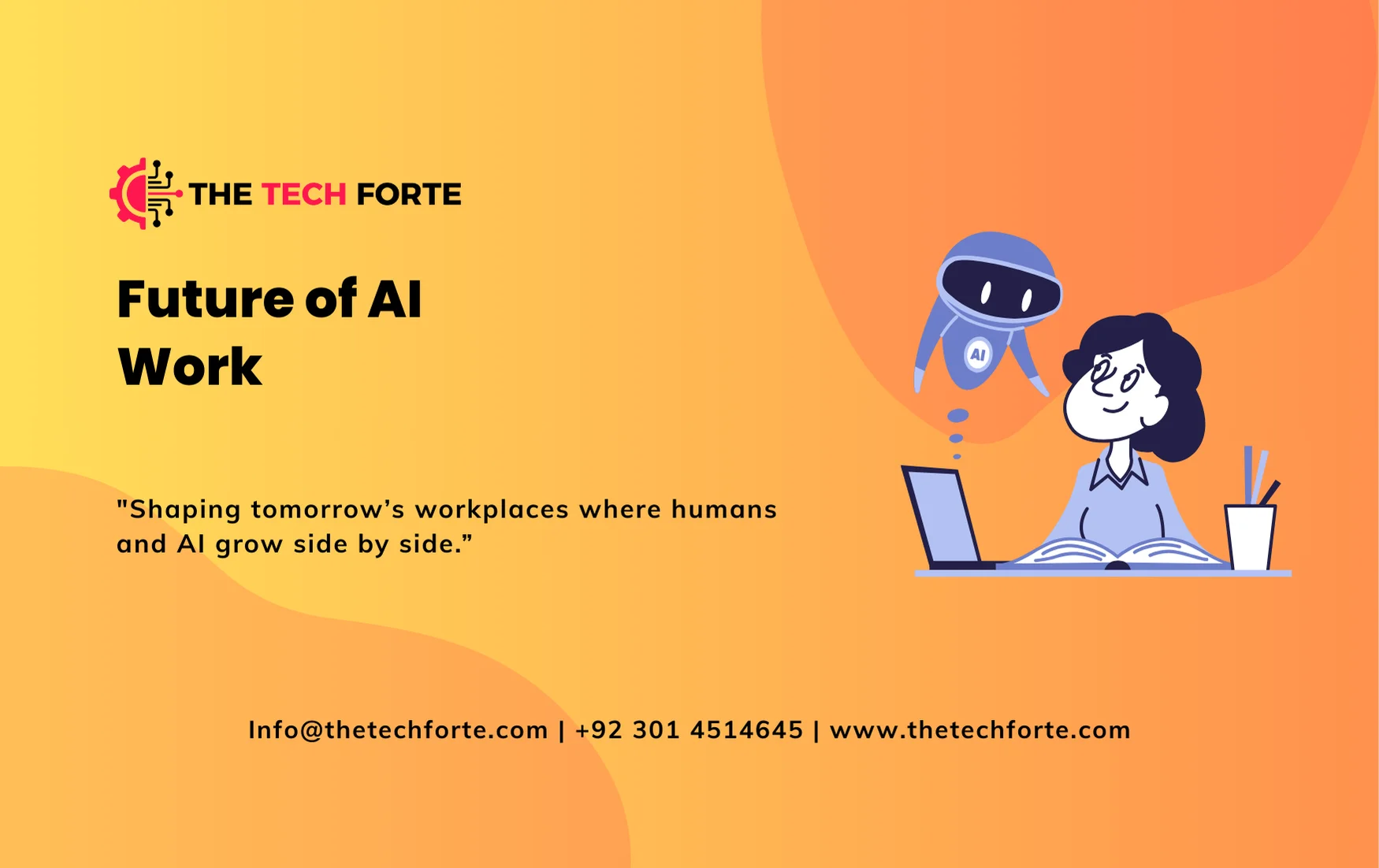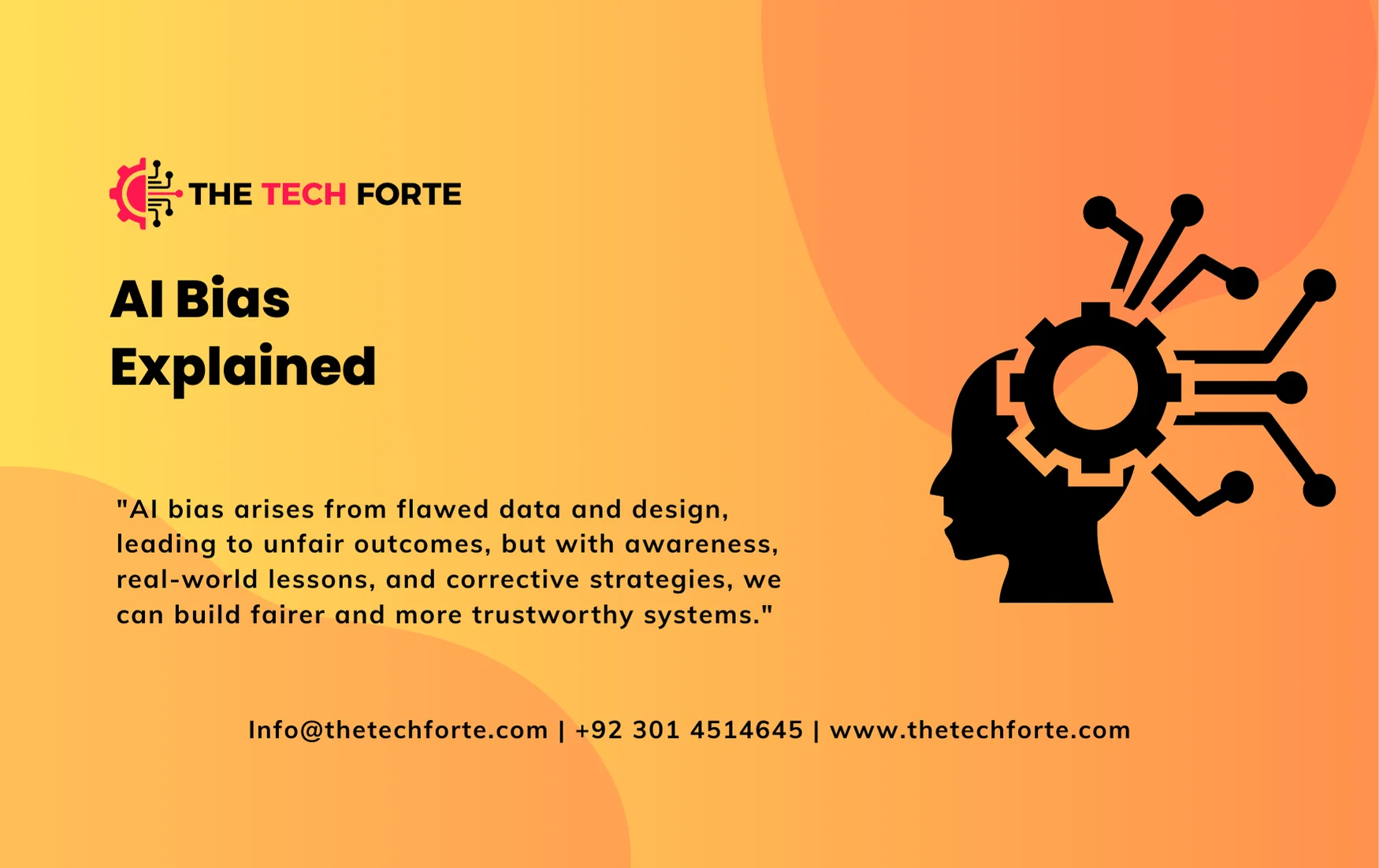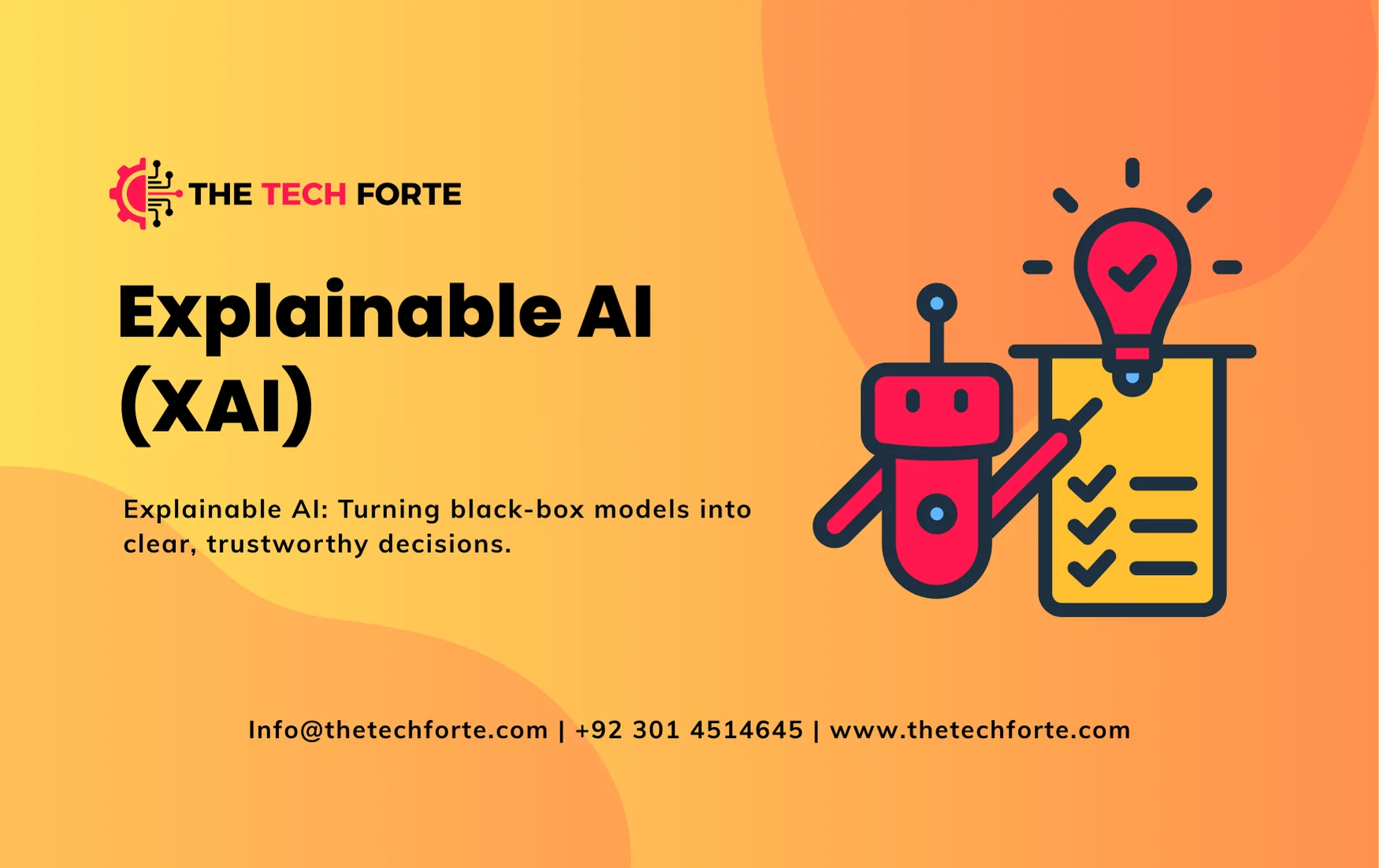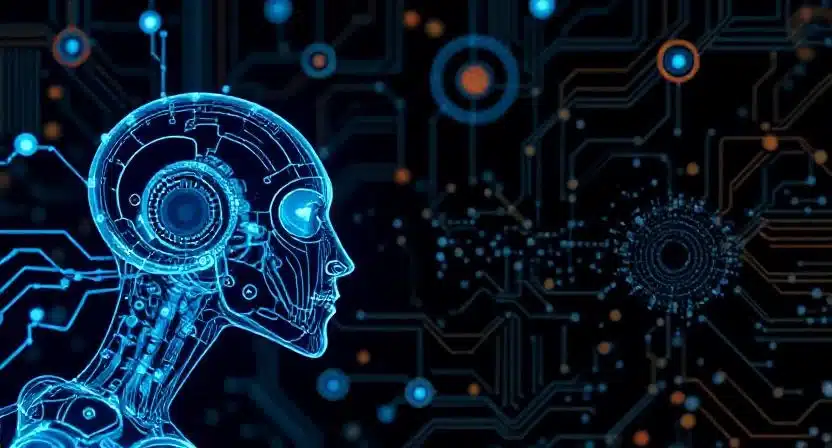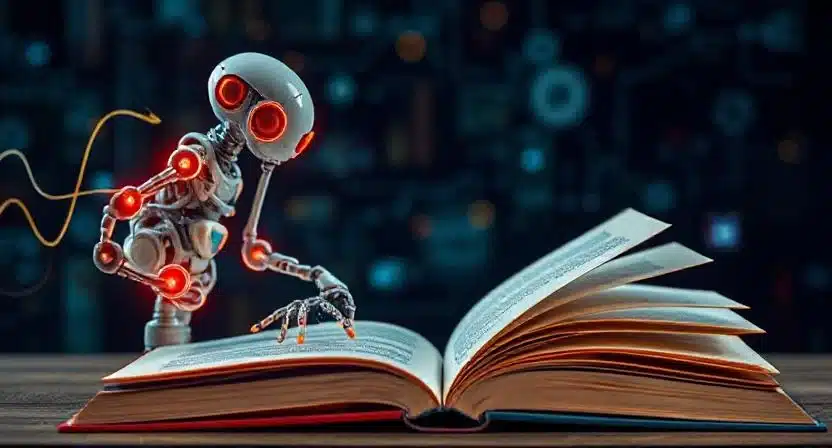A few months ago, I met a graphic designer who had started using AI tools to create quick design drafts. She explained how what once took her four hours now takes less than thirty minutes. But instead of replacing her, the technology freed up her time to focus on creativity. This story captures what the future of AI work looks like, not machines taking over entirely, but rather changing how humans work.
What Does the Future of AI in Work Mean?
When we talk about the “future of AI in work,” we’re looking at how artificial intelligence is reshaping jobs, skills, and workplace practices. It’s not just about robots replacing humans—it’s about collaboration between people and machines. For example, doctors now use AI to detect diseases faster, but the human decision-making still guides treatment.
How AI Is Transforming Industries:
AI is no longer limited to tech companies—it’s entering healthcare, education, finance, retail, and manufacturing.
- In healthcare, AI assists in diagnosing medical scans.
- In retail, AI predicts shopping behaviors to recommend products.
- In manufacturing, robots powered by AI reduce errors in production.
Each industry experiences AI differently, but the pattern is clear: AI speeds up processes while humans focus on problem-solving and strategy.
The Positive Side of AI at Work:
AI brings many opportunities for businesses and employees:
- Efficiency: Automating routine tasks like scheduling meetings or sorting data saves time.
- Accuracy: Fewer errors in tasks such as accounting or inventory management.
- Creativity: Employees can dedicate more energy to innovation rather than repetitive tasks.
For instance, marketing teams now use AI to analyze customer data instantly and then focus on creating personalized campaigns.
The Concerns About AI in the Workplace:
On the other hand, AI also raises valid concerns. Many workers worry about job losses in areas like data entry, customer support, or assembly line work. There are also fears of bias in AI systems, where algorithms might unintentionally favor one group over another. An example is when a hiring AI tool was found to unintentionally discriminate against female applicants because the training data had more male candidates.
Will AI Replace Human Jobs?
The honest answer is yes and no. AI will replace certain repetitive tasks but create new roles in the process. Jobs like AI trainers, data ethicists, and automation specialists didn’t exist a decade ago, but they’re growing fast today. It’s similar to when the internet arrived; it disrupted some industries but also created entirely new ones like digital marketing and e-commerce.
New Careers Emerging with AI:
Some new roles shaped by AI include:
- AI ethicists who ensure fairness in systems.
- Automation specialists who design workflows between humans and AI.
- Prompt engineers who craft queries for AI systems.
Take “prompt engineering” as an example. A few years ago, nobody knew this career path. Now, many companies pay specialists to optimize how AI tools respond.
Skills Workers Need in an AI Future:
To thrive in an AI-driven workplace, employees must strengthen human-focused skills such as:
- Critical thinking: AI can give you data, but humans interpret meaning.
- Creativity: Machines generate options, but humans bring originality.
- Emotional intelligence: No AI can replace empathy in customer service or leadership.
For example, a manager who understands team dynamics will always be more effective than an algorithm predicting “employee engagement.”
AI and Remote Work: A Growing Partnership
With remote and hybrid work, AI is playing an even bigger role. Virtual assistants now schedule online meetings, while AI-driven platforms check productivity trends. Tools like Grammarly help with writing, while Zoom uses AI to filter background noise. These small but practical uses make working from home smoother and more manageable.
Ethical Questions Around AI in Work:
Ethics is a big topic when it comes to AI. Who’s responsible if an AI system makes a mistake at work? How do we ensure that algorithms don’t discriminate? For example, in law enforcement, predictive AI tools have faced criticism for reinforcing racial biases. Addressing these ethical concerns means building transparent and accountable systems.
Business Benefits of AI Adoption:
For companies, AI promises:
- Cost savings by automating repetitive tasks.
- Faster decisions by analyzing data in real-time.
- Personalized services for customers.
Amazon, for example, uses AI to recommend products based on browsing history. This not only improves customer satisfaction but also drives sales.
Preparing for an AI Future in Workplaces:
Organizations must prepare employees for AI integration instead of leaving them behind. This includes:
- Upskilling workers in data literacy and AI basics.
- Reskilling employees for roles that require human judgment.
- Creating support systems for those whose jobs are heavily automated.
For example, banks that once relied on human tellers now train those employees in digital banking support rather than letting them go.
Governments and AI Regulations:
Governments are also stepping in to create rules for AI in work. The European Union, for example, has strict guidelines on AI transparency and accountability. Regulations ensure that businesses don’t misuse AI and that employees remain protected against discrimination or job displacement.
Real-World Examples of AI in Work:
- Healthcare: AI assists doctors in diagnosing cancer earlier.
- Education: Personalized AI tutors help students learn at their own pace.
- Customer service: Chatbots provide 24/7 support, while humans handle complex cases.
These examples highlight that AI works best when it augments human skills rather than replaces them.
The Future Outlook: Collaboration, Not Competition
The future of AI at work looks more like collaboration between humans and machines than competition. Instead of fearing job loss, workers who learn to adapt will find AI to be a tool for growth. The designer from the introduction is a great example AI reduced her workload, but her creativity became more valuable.
Conclusion:
The future of AI at work is not robots controlling everything; it’s about how people adjust, learn, and evolve alongside technology. Sure, certain jobs will disappear, but others will be created, just as it has happened throughout every significant change. The solution is to accept lifelong learning, cultivate uniquely human abilities, and leverage AI as a progress partner.

